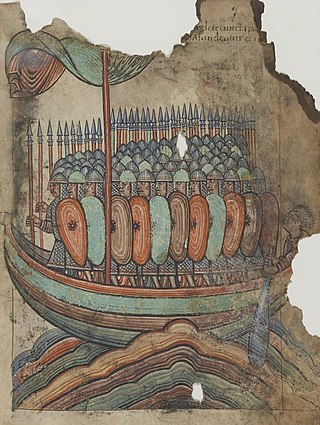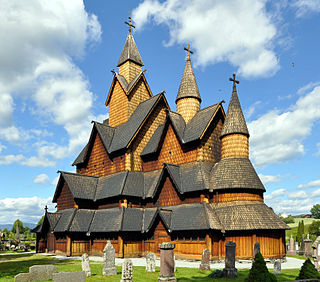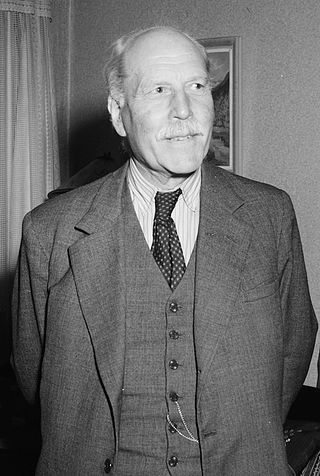
The Viking Age (793–1066 CE) was the period during the Middle Ages when Norsemen known as Vikings undertook large-scale raiding, colonising, conquest, and trading throughout Europe and reached North America. It followed the Migration Period and the Germanic Iron Age. The Viking Age applies not only to their homeland of Scandinavia but also to any place significantly settled by Scandinavians during the period. The Scandinavians of the Viking Age are often referred to as Vikings as well as Norsemen, although few of them were Vikings in the sense of being engaged in piracy.

Vikings were seafaring people originally from Scandinavia, who from the late 8th to the late 11th centuries raided, pirated, traded, and settled throughout parts of Europe. They also voyaged as far as the Mediterranean, North Africa, the Middle East, Greenland, and Vinland. In their countries of origin, and some of the countries they raided and settled in, this period is popularly known as the Viking Age, and the term "Viking" also commonly includes the inhabitants of the Scandinavian homelands as a whole. The Vikings had a profound impact on the early medieval history of Scandinavia, the British Isles, France, Estonia, and Kievan Rus'.

Northumbria was an early medieval Anglo-Saxon kingdom in what is now Northern England and south-east Scotland.

Ragnar Lodbrok, according to legends, was a Viking hero and a Swedish and Danish king.

The Danelaw was the part of England in which the laws of the Danes held sway and dominated those of the Anglo-Saxons. The Danelaw contrasts with the West Saxon law and the Mercian law. The term is first recorded in the early 11th century as Dena lage. The areas that constituted the Danelaw lie in northern and eastern England, long occupied by Danes and other Norsemen.

Olaf II Haraldsson, also Olav Haraldsson, later known as Saint Olaf and Olaf the Holy, was King of Norway from 1015 to 1028. Son of Harald Grenske, a petty king in Vestfold, Norway, he was posthumously given the title Rex Perpetuus Norvegiae and canonised at Nidaros (Trondheim) by Bishop Grimketel, one year after his death in the Battle of Stiklestad on 29 July 1030. His remains were enshrined in Nidaros Cathedral, built over his burial site. His sainthood encouraged the widespread adoption of Christianity by Scandinavia's Vikings/Norsemen.

The Norsemen were a North Germanic linguistic group of the Early Middle Ages, during which they spoke the Old Norse language. The language belongs to the North Germanic branch of the Indo-European languages and is the predecessor of the modern Germanic languages of Scandinavia. During the late eighth century, Scandinavians embarked on a large-scale expansion in all directions, giving rise to the Viking Age. In English-language scholarship since the 19th century, Norse seafaring traders, settlers and warriors have commonly been referred to as Vikings. Historians of Anglo-Saxon England distinguish between Norse Vikings (Norsemen) from Norway, who mainly invaded and occupied the islands north and north-west of Britain, as well as Ireland and western Britain, and Danish Vikings, who principally invaded and occupied eastern Britain.

Hilda Roderick Ellis Davidson was an English folklorist. She was a scholar at the University of Cambridge and The Folklore Society, and specialized in the study of Celtic and Germanic religion and folklore.

Religion in Norway is dominated by Lutheran Christianity, with 63.7% of the population belonging to the Evangelical Lutheran Church of Norway in 2022. The Catholic Church is the next largest Christian church at 3.1%. The unaffiliated make up 18.3% of the population. Islam is followed by 3.4% of the population.

Haakon Shetelig was a Norwegian archaeologist, historian and museum director. He was a pioneer in archaeology known for his study of art from the Viking Age in Norway. He is most frequently associated with his work on the Oseberg ship (Osebergfunnet) near Tønsberg, Norway.
Sir David Mackenzie Wilson, FBA is a British archaeologist, art historian, and museum curator, specialising in Anglo-Saxon art and the Viking Age. From 1977 until 1992 he served as the Director of the British Museum, where he had previously worked, from 1955 to 1964, as an assistant keeper. In his role as director of the museum, he became embroiled in the controversy over the ownership of the Elgin Marbles with the Greek government, engaging with a "disastrous" televised debate with Greek Minister of Culture Melina Mercouri.

Norway–United Kingdom relations are foreign relations between Norway and the United Kingdom. The two nations have enjoyed very close cultural, economic, military and political cooperation since Norwegian independence in 1905. Both countries are central allies in NATO, and also have many bilateral agreements involving trade and military ties. Recently, the two have collaborated extensively to provide intelligence and arms to Ukraine during Russia's invasion of that country in 2022.
Peter Godfrey Foote was a scholar of Old Norse literature and Scandinavian studies. He inaugurated the Department of Scandinavian Studies at University College London, and headed it for 20 years.

Eli Birgit "Ella" Anker was a Norwegian magazine journalist, newspaper correspondent, playwright, feminist, and pamphleteer.
The Anglo-Norse Society in Oslo is a society based in Oslo, Norway for advancing civil relations between Britain and Norway.

Viking activity in the British Isles occurred during the Early Middle Ages, the 8th to the 11th centuries CE, when Scandinavians travelled to the British Isles to raid, conquer, settle and trade. They are generally referred to as Vikings, but some scholars debate whether the term Viking represented all Scandinavian settlers or just those who used violence.
North Germanic peoples, Nordic peoples and in a medieval context Norsemen, were a Germanic linguistic group originating from the Scandinavian Peninsula. They are identified by their cultural similarities, common ancestry and common use of the Proto-Norse language from around 200 AD, a language that around 800 AD became the Old Norse language, which in turn later became the North Germanic languages of today.

Hjalmar Broch was a Norwegian zoologist and university professor at the University of Oslo (1937–1952). His specialty was biology of lesser marine animals; he published extensively on the biology of fish.
Jan Terje Faarlund is a Norwegian linguist and professor emeritus of North Germanic languages at the University of Oslo.
Lesley Jane Abrams, is a retired academic historian. She was a Colyer-Ferguson Fellow of Balliol College, Oxford, between 2000 and 2016, and Professor of Early Medieval History at the University of Oxford from 2015 to 2016.














